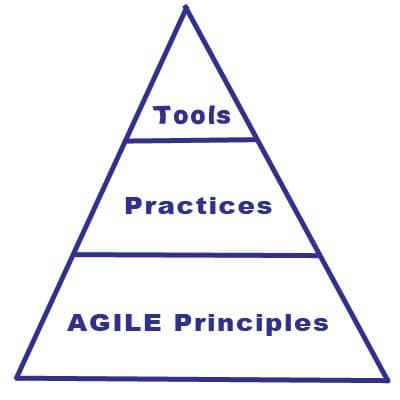JIRA is Not Agile

I’ve heard people say, “We started using Jira and GreenHopper, so we’re Agile now”. Similar things are said of Rally, VersionOne, LeanKit, TargetProcess, etc. In making those declarations, it’s clear that they don’t understand Agile at all.
At its core, Agile is a set of Values and Principles:
….
· Individuals and interactions over processes and tools
· Working software over comprehensive documentation
· Customer collaboration over contract negotiation
· Responding to change over following a plan
That is, while there is value in the items on the right, we value the items on the left more.
Underlying these is a mindset with a focus on self-discipline, self-organization, and adaption to change.
The Practices of Scrum (Sprint Planning, Daily Scrum, Sprint Review, and Sprint Retrospective), the Roles (ScrumMaster, Product Owner, and Development Team), and the Artifacts (Product Backlog, Sprint Backlog, and Product Increment) only help the team support the principles and achieve the goal of delivering working software.
Electronic tools (Task walls, Development Environments, …) or physical tools (Task walls, …) are only useful in so far as they provide support for those principles and practices.
If your Agile adoption starts with a tool and a scattering of practices, then the whole point has been missed and the core – the essence – of Agile needs to be carefully reviewed until that is obvious. One might say your Organization isn’t taking real change seriously
Image attribution: Agile Pain Relief Consulting

Mark Levison
Mark Levison has been helping Scrum teams and organizations with Agile, Scrum and Kanban style approaches since 2001. From certified scrum master training to custom Agile courses, he has helped well over 8,000 individuals, earning him respect and top rated reviews as one of the pioneers within the industry, as well as a raft of certifications from the ScrumAlliance. Mark has been a speaker at various Agile Conferences for more than 20 years, and is a published Scrum author with eBooks as well as articles on InfoQ.com, ScrumAlliance.org and AgileAlliance.org.